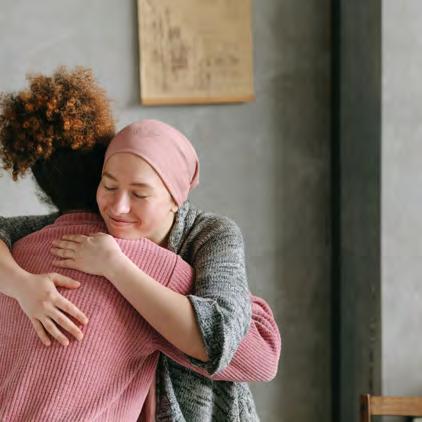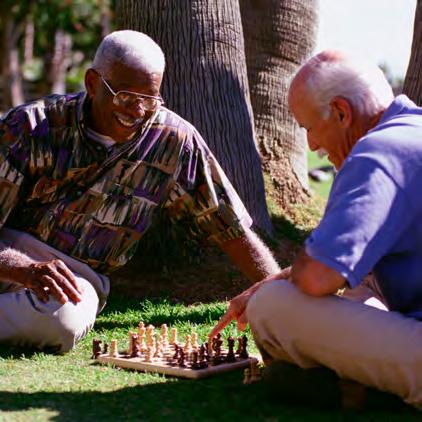
1 minute read
HEALTHY CONNECTIONS MAKE FOR A HEALTHY HEART
In order to take care of our hearts, we know that we should exercise, stop smoking, watch what we eat, and monitor our blood pressure. However, not many people realize how important it is to nurture healthy relationships to keep heart disease away.

Advertisement
People need other people to flourish. According to Dr. Michael Platt Ph.D., a biological anthropologist at the University of Pennsylvania, “Human beings are wired to connect. We have the most complex social behavior out of all animals and this behavior is a critical part of our adaptive toolkit.”
It has been shown that people who experience isolation are more likely to have weakened immune systems, depression, and shorter life spans. Research at Harvard University has found that loneliness stresses the heart and the entire cardiovascular system. One literature review found that lacking a social connection can be more dangerous than smoking 15 cigarettes a day and deadlier than obesity.


Alternatively, people who feel connected to others and socialize on a regular basis can look forward to a longer and healthier life. Heart and blood vessels are more likely to be healthy under conditions of love, intimacy, and connectedness.
How can an active social life help your heart?
One theory suggests that people who enjoy socializing tend to choose healthy behaviors (such as exercising more and drinking less). Connecting with others also has a calming e ect on the brain and reduces inflammation.
Do yourself and your heart a favor and prioritize spending more time with your kids, parents, friends, or neighbors. If you live far away from family, consider volunteering, or joining a church or club.
The elderly population in our society is particularly vulnerable to loneliness and isolation. You can make a huge di erence by reaching out to an older relative or neighbor in your life who would benefit from companionship. It would do both of your hearts much good!



Sources: Florida Health Care Plans, Dana Foundation, and Harvard Medical School









